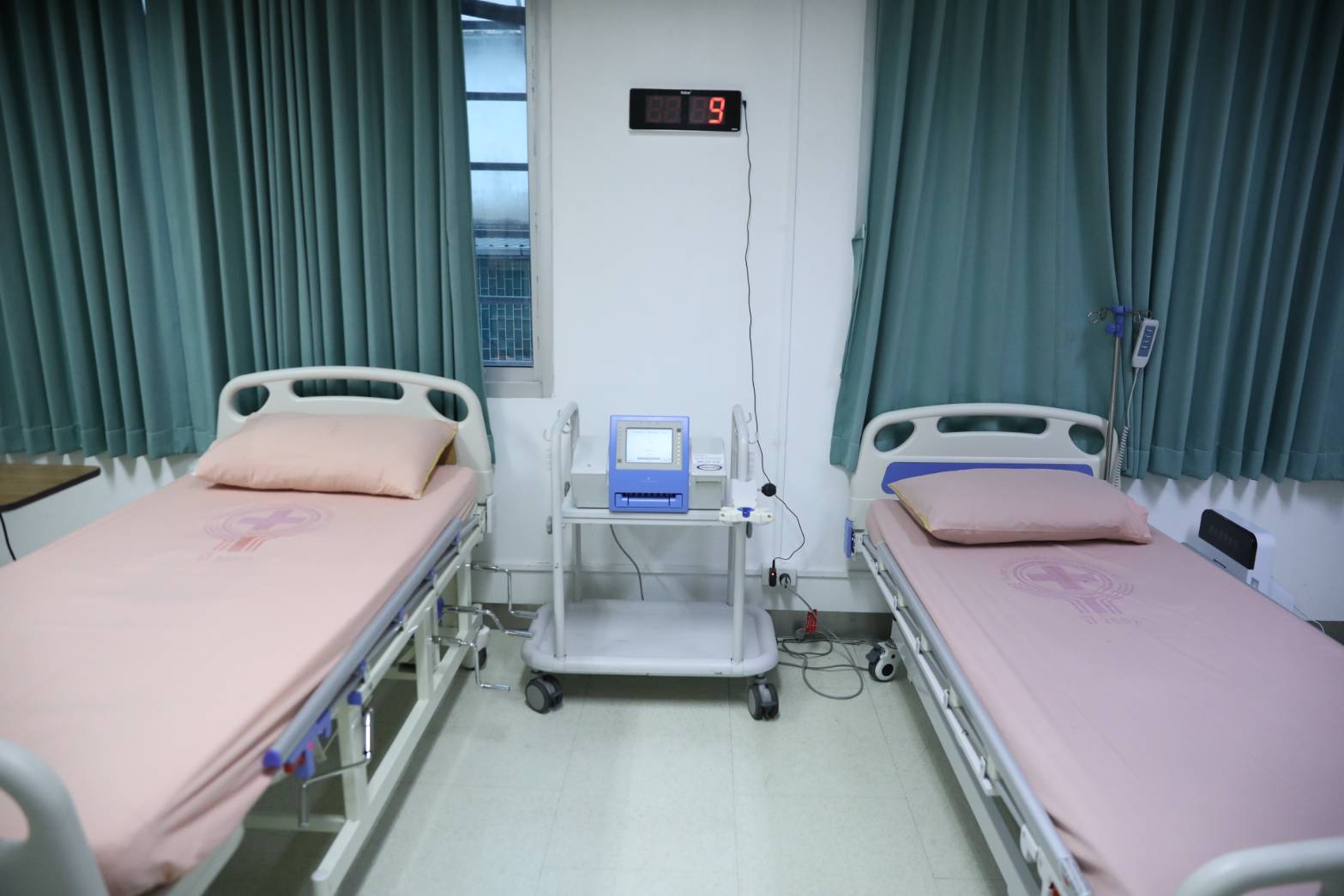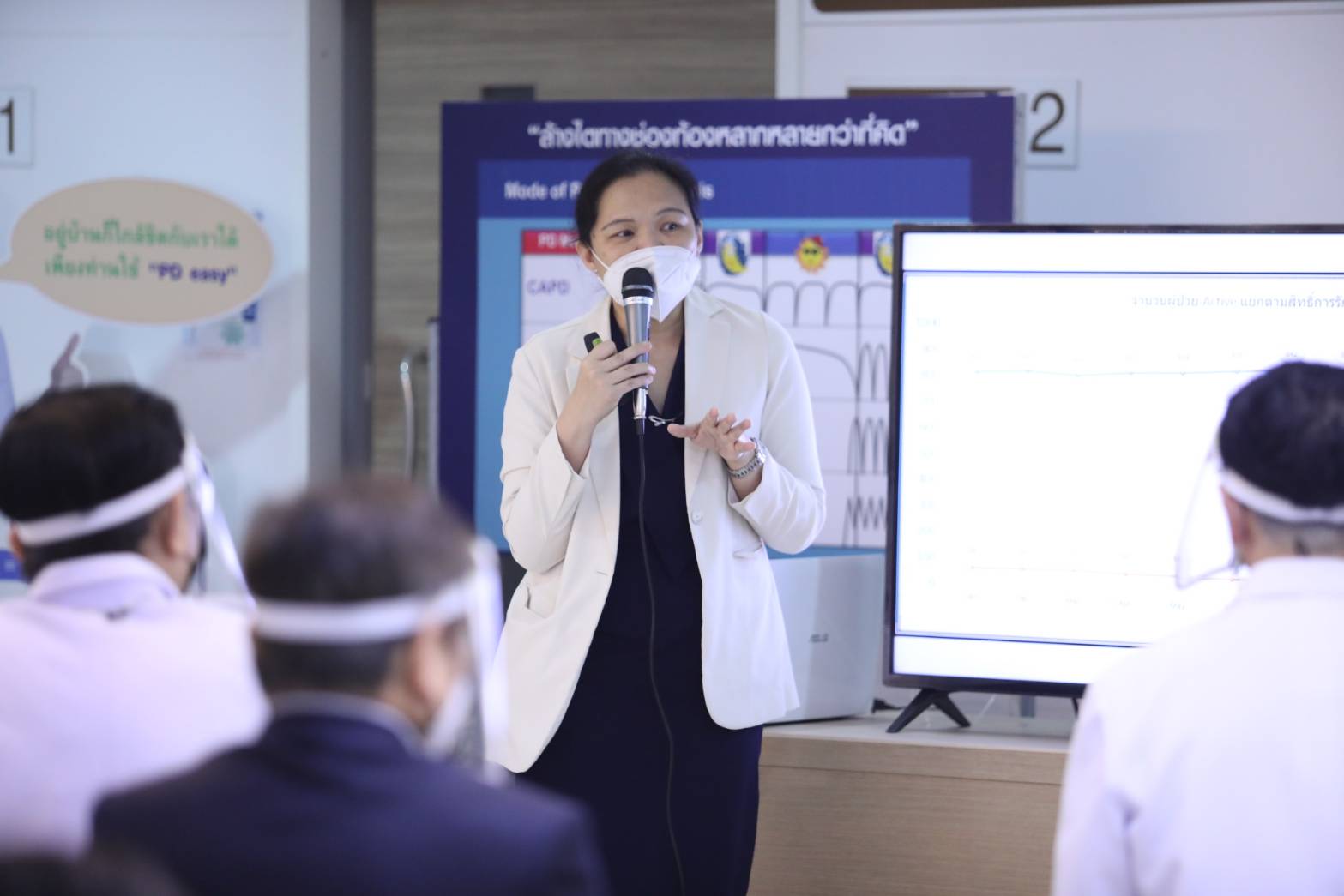
- Home
- DescriptionNews
APD changes the life of a patient with kidney failure

APD changes the life of a patient with kidney failure
At the beginning of 2021, Automated Peritoneal Dialysis (APD) was introduced to Universal Coverage Scheme (UCS)’s benefits package to improve the life quality of patients living with chronic kidney disease.
Manee Paintanphol, a patient at Ban Phaeo Hospital in Samut Sakhon Province, is the first UCS beneficiary to receive APD — a treatment for kidney failure with the use of an automated cycler to fill a patient’s abdomen with dialysate, then drains it into a sterile bag, the process that is called ‘exchange.’
Before that, she carried out Continuous Ambulatory Peritoneal Dialysis (CAPD) for two years. It put a burden on her as its method required her to do the exchange four times a day, from 6 am to 11 pm. She must also change five to six bags of dialysate during the process.
It made her felt worried and restless.
“Sometimes I fell asleep before 11 pm. Because I’m old and my health is not good. So I missed doing the exchange sometimes. It made my belly swollen,” she said.
Manee’s struggle was observed by her doctor, who suggested her to register for APD request from UCS.
When she started using APD early this year, she could sleep through the night and change only two bags of dialysate a day.
“The doctor set up the machine for me. My job is just to press a green button on the machine and change the dialysate bags,” she said. “Now I could sleep properly and feel stronger.”

Dr Piyathida Jungsaman, a kidney specialist at Ban Phaeo Hospital, said that APD suited patients who have to perform CAPD for a very long time until their abdominal lining is frail, and require them to increase the volume of dialysate.
APD is also for patients with kidney failure who may not be treated by hemodialysis because of their health and financial conditions.
Sakchai Kanjanawatana, Secretary-General of National Health Security Office (NHSO) which oversees UCS, said that CAPD had been provided to UCS beneficiaries since 14 years ago, allowing patients with final-stage kidney failure to survive.
More than 30,000 UCS beneficiaries receive CAPD so far.
APD has been available for beneficiaries of Social Security Scheme and Civil Servant Medical Benefits Scheme, before it is included in UCS benefits package early this year.
NHSO targets to provide APD to at least 100 patients within this year. Currently, more than 173 patients make reservations for APD. Doctors from 20 healthcare units across Thailand expressed their interest in obtaining APD for their patients.

